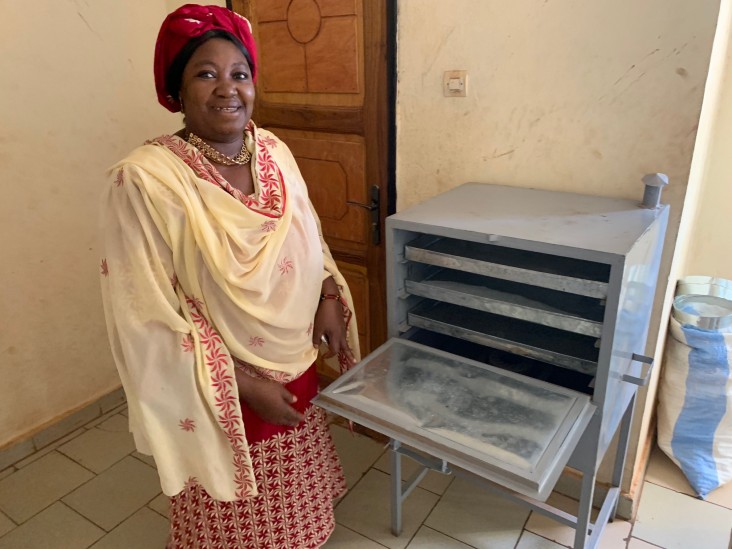Speeches Shim

April 2019 –In the landlocked West African country of Mali, women entrepreneurs and business owners often struggle to obtain credit, and access to business training. For Madame Traore, an entrepreneur hailing from Kati, a satellite city outside of the country’s capital city of Bamako, paving a path to access resources for her business was a priority.
“I saw an opportunity, especially during the rainy season when there isn’t enough affordable cereal,” says Traore, who is a single mother of five, ages 12 to 21, and focused on improving her family’s well-being. “People here love the local cereal. It’s the preferred food of the area so it’s always in demand,” she adds.
Through a partial loan guarantee agreement among USAID’s Development Credit Authority (DCA), the Swedish International Development Cooperation Agency (Sida), and Bank of Africa, women entrepreneurs like Traore are receiving small loans to grow their businesses. The DCA and Sida partnership lowers the risk for the local bank so that they can take more risk that ordinarily isn’t possible, such as a microloan to an entrepreneur without a credit history. Under the agreement with DCA and Sida, Madame Traore is one of 200 women entrepreneurs who has received a loan from Bank of Africa. To date, more than $2.5 million in financing has been disbursed for women entrepreneurs—with a greater amount to be released in the future.
Achieving Sustainable Growth
Led by International Executive Service Corps (IESC), the Finance for Food Security and Women Entrepreneurs Project, provided an agriculture processing training for Traore to grow her cereal business. For Traore and her business, taking a larger step in being a household-level producer to a commercial entity required additional training and access to more household equipment such as a scale, a packager and a small oven.
To purchase the resources, she needed to receive a loan. But without a formalized business and history of income, she couldn't access one. There were small amounts of financing available through a local cooperative, but the interest rates were onerous and the amount negligible. The partnership with USAID, Sida and Bank of Africa helped fill the financial gap and Traore took out two small loans: one for $350 and then another for $700.
With financing in hand, Traore began producing a significant amount of locally-made foodstuff. She now sells her product throughout the community—to road-side shops, purveyors at the market, area guesthouses and even the local municipality. Traore currently produces 300 kilos of fully processed and packaged cereal a week. She has even expanded into producing fruit juice—which now makes up 20 percent of her business.
Cultivating New Business Skills for Positive Impact
Traore says that she was motivated by self-sufficiency because as a woman-led household, she needed to care for her children. Her two oldest are twins, a nurse named Maimoua and the other, Yacouba, are currently studying for a baccalaureate in agronomy. This is something that Traore notes with particular pride, since she was unable to receive an education. With an eye toward the future, Traore has big plans for her business. While she currently employs ten women, she wants to upgrade her equipment so that she can efficiently and effectively produce a greater amount of cereal, particularly during the off season. When women are economically empowered, they re-invest in their families, fueling economic growth and positive impact.
The five-year Feed the Future Mali Finance for Food Security and Women Entrepreneurs aims to create a more robust agricultural financial sector and empower women business owners. The program, which started in 2015, has helped 35,499 micro, small, and medium enterprises—out of which 62% are owned by women—receiving technical assistance. This $ 2.97 million program covers the regions of Kayes, Sikasso, Mopti and the capital Bamako.

Comment
Make a general inquiry or suggest an improvement.